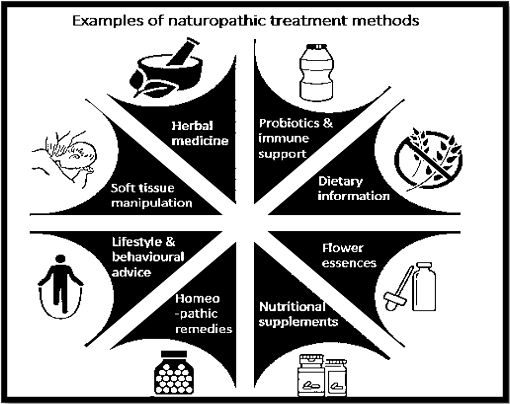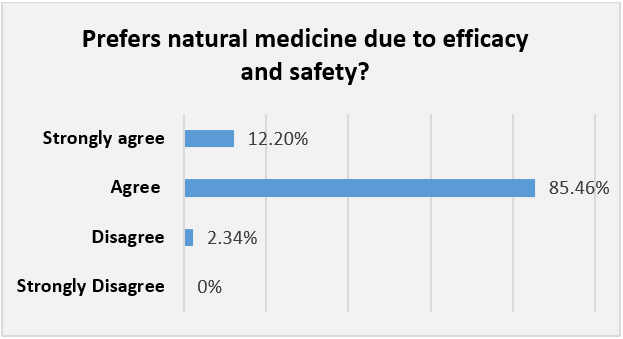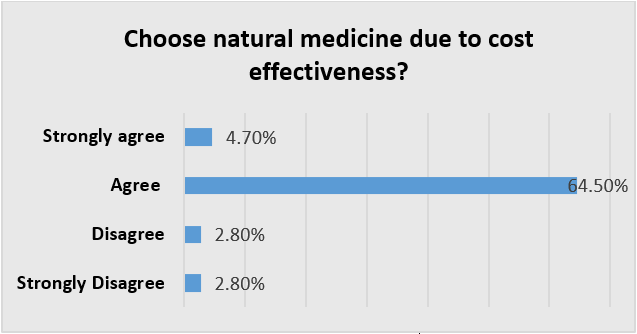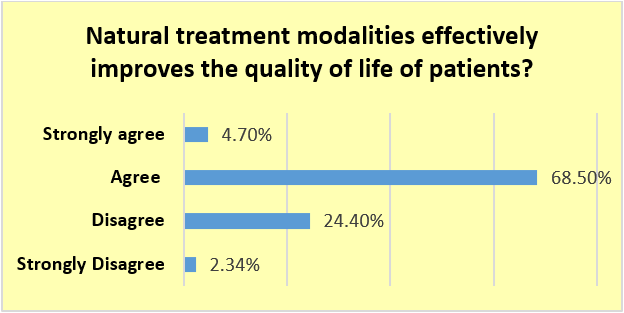Research Article
Volume 5 Issue 1 - 2023
Significance of Clinical Pharmacognosy Course in Pharmacy Curriculum: for Effective and Safe Delivery of Natural Medicines.
Department of Pharmacognosy, Faculty of Pharmaceutical Sciences, Dow University of Health Sciences, Karachi – Pakistan
*Corresponding Author: Dr Farah Saeed, Department of Pharmacognosy, Faculty of Pharmaceutical Sciences, Dow University of Health Sciences, Karachi – Pakistan.
Received: June 20, 2023; Published: July 06, 2023
Abstract
Nature is the base of all the systems of medicines. It was initiation for the cure of mankind on earth. In current era use of natural treatment modalities is in vogue. The natural treatment medicines and modalities are utilized for the prevention, supportive adjuvant of chronic diseases and for the cure of diseases diagnosed at early stage. The naturopathy facilitates in improving the overall quality of life of patients. World Health Organization acknowledges the contribution of natural treatment modalities and natural medicines for health, wellness and people centered healthcare. Precisely, it is the time to understand the worth of natural medicine for healing ailing humanity and to realize and ensure that they are prescribed judiciously by the expert of that particular natural medicine field. Take any form of natural medicine according to the prescription and avoid self-medication. Pharmacist have a key role to play here. As they are the custodians of drugs and have sound knowledge concerning synthetic and natural medicines.
The aim of the research work is two-folds. First to assess the knowledge and attitude of under-graduate Pharmacist towards natural medicine. Second, to identify areas in which students may be provided practical knowledge and groom their attitudes to better serve the community as a responsible Pharmacist.
The questionnaire was prepared in English language after reviewing the literature for related research work. The questionnaire is designed to gather information on the knowledge and understanding of 4th & 5th year Pharm D professional students towards natural system of medicine. 22 questions were included in the questionnaire.
Results of the study were evaluated through Microsoft excel. The results revealed that students have sound knowledge but more training may be provided for the judicious use of natural medicines and to ensure that the Pharmacists are able to provide relevant information to the stake holders (practitioners and patients) and to ensure check on the dispensing of natural products.
Keywords: Pharmacist, counselling; Therapeutic efficacy; Side effects; Toxic effects
Introduction
The roots of disease state lies in lifestyle factors (poor diet, inadequate rest, no exercise, negative thinking) and environmental factors including stress, micro-organisms, pollutants. Naturopathic system provides cure through elimination of bad habits (smoking, coffee, over-eating, alcoholic drinks, excessive meat and rich cholesterol food intake, worry), adopting corrective habits like exercise, positive mental attitude and moderation in quest of health and wealth. Developing healthy habits like fasting, eating healthy, balanced diet, hydrotherapy, exercise, adequate sleep, positive thinking and choosing natural medicines and modalities for prevention and treatment of disease. Nature is the roots of all the systems of medicines. It was initiation for the cure of mankind on earth. The fundamental principles of naturopathic medicines includes innate healing power of human body, preventing diseases and treating patients with drugs obtained from nature as a whole person and not only targeting the disease. Natural medicine considers each patient as a unique entity with distinctive biochemical make up. It believes in patient centered treatment approach. Wellness in natural medicine system means mental, spiritual and physical health. In current era, use of natural treatment modalities is in vogue. The natural treatment medicines and modalities are utilized for the prevention, supportive treatment of chronic diseases and for the cure of diseases diagnosed at early stage. The naturopathy facilitates prevention of disease, supportive treatment of diseases and in improving the overall quality of life of patients. The natural medicine system includes unani/ tibb, ayurveda, chinese, herbalism, aromatherapy, acupuncture, acupressure, meditation, exercise, yoga and mindfulness [1-6].
Pharmacognosy is one of the pillar of Doctor of Pharmacy program. This field equips the pharmacist with the wholesome knowledge of natural medicines. Clinical Pharmacognosy train the pharmacist with the clinical use of the natural medicines, it encompasses the medicinal uses, side effects, toxic effects, dosage, contra-indications and conventional – natural medicine, natural medicine – natural medicine and natural medicine – food interactions [7].
Methodology
Study Instrument
The questionnaire was prepared in English language after reviewing the literature for related research work. 22 questions were included in the questionnaire.
The questionnaire was prepared in English language after reviewing the literature for related research work. 22 questions were included in the questionnaire.
Study population
The questionnaire was designed to gather information on the knowledge and understanding of 4th & 5th year Pharm D professional students towards natural system of medicine.
The questionnaire was designed to gather information on the knowledge and understanding of 4th & 5th year Pharm D professional students towards natural system of medicine.
Study Design
Cross-sectional Questionnaire based study design.
Cross-sectional Questionnaire based study design.
Sample Size
700 questionnaires copies were taken out and got filled by the 4th & 5th Pharm D professional students of Institute of Pharmaceutical Sciences, Dow University of Health Sciences.
700 questionnaires copies were taken out and got filled by the 4th & 5th Pharm D professional students of Institute of Pharmaceutical Sciences, Dow University of Health Sciences.
Time period of study
April – May 2023
April – May 2023
Statistical Analysis
The data will be collected and entered and interpreted using Microsoft Excel. The results of the study were recorded in percentages (https://www.exceldemy.com/analyze-survey-data-in-excel/). [8]
The data will be collected and entered and interpreted using Microsoft Excel. The results of the study were recorded in percentages (https://www.exceldemy.com/analyze-survey-data-in-excel/). [8]
Results
The study results revealed that 93% students considered healthy life style is a pre-requisite for good health. 84.1% exhibited their opinion of global inclination of population towards natural medicines/ modalities. Most of the students knew that the term natural medicine encompasses herbalism, hikmat, homeopathy, acupuncture, aromatherapy, hijama, yoga, exercise, meditation and mindfulness. 99.08% believes in natural medicine. 68.13% prefer natural medicine system over conventional system. 31.87% prefers conventional medicine over natural medicine system. 50% agrees on taking natural medicine according to the prescription and 50% disagrees on taking natural medicines according to prescription. 97.6% population under study preferred natural medicines due to their efficacy and safety (Figure 1). 69.2% were of the opinion that natural medicines are preferred due to their cost effectiveness (Figure 2). 30% agreed on concomitant use of natural medicines with conventional medicines. While, 70% disagreed on simultaneous use of natural medicines with conventional medicine. 73.2% population agrees that natural medicines improves quality of life and 26.74% disagrees with this statement (Figure 3). 92.6% of the study participants agreed that it is important to take the previous medicine history of patients. On the other hand 7.4% were of the opinion that taking previous medicine history is insignificant. 95% students agreed that self-medication of natural medicine is unsafe while 5% disagreed with this statement. 95% of the study population acknowledges the significance of label claims and expiry date. 5% considered information on label insignificant. 100% of the participants agreed that natural medicines should be approved by the regulatory bodies. 42% of the population under study agreed that natural medicines should be taken according to the prescription of the particular natural medicine practitioner. 58% disagreed that natural medicines to be taken only on prescription of competent practitioner. 100% of the participants agreed that general population opt for natural medicines under the influence of social media. 85% of the participants agreed that it’s unsafe to take natural medicines on the recommendations specified on social media. But 15% disagreed and considered social media recommendations sufficient and safe for the intake of natural medicines. 100% of the study population agreed to the need of carrying out awareness sessions for community and health care professionals concerning natural medicines/ modalities and their integration with conventional medicine (Table 1).
| S. No. | Items | Strongly Disagree | Disagree | Agree | Strongly Agree |
| 1 | Healthy life style is a pre-requisite for good health? | 1% | 0% | 6% | 93% |
| 2 | Global inclination of population towards natural medicine/ modalities? | 0.90% | 7% | 84.10% | 8% |
| 3 | Natural medicine deals with herbalism, hikmat, homeopathy, acupuncture, aromatherapy, hijama, yoga, exercise, meditation, mindfulness? | 1% | 1% | 48.00% | 50% |
| 4 | Believe in natural medicine system? | 0.40% | 0.40% | 83.50% | 15.58% |
| 5 | Will you prefer any natural system of treatment over conventional medicine system? | 1.87% | 30% | 63.40% | 4.69% |
| 6 | Use natural medicine on the prescription of the specific natural medicine practitioner? | 16% | 34% | 41% | 9% |
| 7 | Prefers natural medicine due to efficacy and safety? | 0% | 2.34% | 85.46% | 12.20% |
| 8 | Choose natural medicine due to cost effectiveness? | 2.80% | 2.80% | 64.50% | 4.70% |
| 9 | Take natural treatment modality along with conventional medicine? | 10.00% | 60.00% | 25% | 5% |
| 10 | Natural treatment modalities effectively improves the quality of life of patients? | 2.34% | 24.40% | 68.50% | 4.70% |
| 11 | Disclose the use of natural medicine/ modality to conventional practitioner and vice versa? | 1.80% | 5.60% | 88.90% | 3.70% |
| 12 | Irrational (self –medication) use of Natural medicines is unsafe? | 1% | 4% | 35% | 60% |
| 13 | It is important to check the label claims and the expiry date? | 1% | 4% | 35% | 60% |
| 14 | Approval of the natural medicine with the drug regulatory authority of Pakistan should be verified? | 0% | 0% | 5% | 95% |
| 15 | Use natural treatment modalities/ medicines according to specified natural practitioner recommendations? | 3% | 55% | 40% | 2% |
| 16 | Many people opt for natural treatment after reading or watching material available on social media? | 0% | 0% | 90% | 10% |
| 17 | It is unsafe to use natural treatment on the basis of recommendations watched or read on social media? | 0% | 15% | 85% | 0% |
| 18 | Public awareness & training sessions for community & health care professionals about natural treatment modality/ medicines in integration with conventional medicines? | 0% | 0% | 10% | 90% |
Table 1: Knowledge, attitude and practice of under-graduate pharmacy students concerning Natural medicine.
Discussion
It is estimated that two-thirds of the world’s population seek health care support and services from natural sources over modern medicine. Recent statistics show that half of the global population are dependent on natural medicine [9-10]. The study results acknowledges the world-wide inclination of population towards natural medicine. Natural treatment modalities include mind-body therapies, body manipulation and natural medicines. Natural medicine encompasses heterogeneous effective medicinal products and practices. Steel et al. (2022) conducted international survey on practice and behavior of naturopathic practitioners. The study results revealed that globally comparable behavior of practitioners in recommendation of lifestyle modification, dietary change, nutritional supplementation, and natural origin medicines to their patients. Natural medicine practitioners gave sufficient time to the patient and discuss with them their health related queries. [11]
In current era, many conventional practitioners acknowledges the benefits of natural medicines and incorporates them with conventional medicines in their prescription depending on patients’ disease state and symptoms. Therefore, it is a pre-requisite to have a positive knowledge transmission connection among conventional practitioners, different natural system practitioners, pharmacists and patients about effective and safe use of any natural medicine along with their toxicity profile, contra-indications and interactions.12 Pharmacists’ have to be play their role. Create awareness to adopt integrated system of medicine to provide cure to the ailing humanity. Disseminate that any natural medicine should be taken in accordance with the prescription of the natural practitioner and should not adopt self-medication. It is also immensely essential to counsel patients to tell the conventional and natural medicine practitioners about the medicines being taken (whether conventional, natural or home remedy) at the time of visit to their clinic in order to avoid side effects and interactions.
Natural medicines may cause adverse effects. Primary cause of occurrence of adverse effects is lack of knowledge, misidentification, dosing errors and unawareness of conventional drug-natural medicine, natural medicine-natural medicine and natural medicine-food interactions. [13]
Natural origin formulations may cause adverse events due to its chemical constitution including hypersensitivity reactions, multiple organ dysfunction including cardiovascular, nervous system, kidney and liver failure along with the chances of the development of malignant disease [14-15].
World Health Organization laid down strategy for traditional medicine (2014 – 2023) that suggested that full potential of the natural medicines should be explored keeping standardization, safety and efficacy mandatory for the health care system. Development of policies at national level and globally generalized rigorous rules and regulation for development of natural medicines. Our study results also emphasized on the need of generalized policies for the natural medicines formulation and prescription in order to rule out the quack natural medicines manufacturers and practitioners. It also encouraged the integration of natural medicine systems with the conventional medicine system for patient care and robust health care system. [16]
In this study, the study population incorporated was under-graduate pharmacy students. The purpose of choosing this particular study population is that the pharmacist has an inter-connecting role between patients and practitioners or other health care professionals. Pharmacists are the custodians of drugs including both of conventional and natural origin. They are the drug experts whether it is of synthetic or natural origin. It is their responsibility to provide valid information about indication, side-effects, contra-indications and interactions of different systems medicines to both the practitioners and the patients. This study also revealed that Pharm D students should be well-trained to perform their role in judicious use of natural medicines and its integration with the conventional medicine system in the quest to provide complete cure and improving quality of life of patients.
Conclusion
Results of the study revealed the inclination of the population under study toward natural medicine/modalities. But there is need to create awareness in community by the pharmacists that natural medicines are safe and effective but only when taken according to the prescription of respective natural medicine practitioner only; otherwise they may exhibit side-effects toxic-effects, conventional drug-herb interaction, herb-herb interaction and herb-food interaction. Pharmacists also need to guide patients that adopting healthy life style measures, that is healthy diet, appropriate night sleep, staying hydrated, inclusion of exercise, yoga and positive thinking approach plays significant role in maintaining healthy physical and mental health; prevention of diseases and also in improving quality of life of patients suffering from chronic disease.
Acknowledgement
Nil
Nil
Conflict of interest
No conflict of interest.
No conflict of interest.
Funding Disclosure
Nil
Nil
References
- Implementation of the WHO Traditional Medicine Strategy 2014-2023. https://www.who.int/activities/implementation-of-the-WHO-traditional-medicine-strategy-2014-2023
- Repke MA, Berry MS, Conway LG, III, Metcalf A, Hensen RM, Phelan C. (2018). How does nature exposure make people healthier?: Evidence for the role of impulsivity and expanded space perception. PLoS ONE. 13(8): e0202246.
- Bratman GN, Anderson CB, Berman MG, Cochran B, de Vries S, Flanders J, Folke C, Frumkin H, Gross JJ, Hartig T, Kahn Jr PH, Kuo M, Lawler JJ, Levin PS, Lindahl T, Meyer-Lindenberg A, Mitchell R, Ouyang Z, Roe J, Scarlett L, Smith JR, van den Bosch M, Wheeler BW, White MP, Zheng H, Daily GC, (2019). Nature and mental health: An ecosystem service perspective. Sci. Adv. 5(7): 1-14.
- Alostad AH, Steinke DT and Schafheutle EI. (2020). Herbal Medicine Classification: Policy Recommendations. Front. Med. 7:31.
- Bhusnure OG, Suryawanshi S, Vijayendra Swamy SM, Gholve SB, Girm PS, Birajdar MJ. (2019). Standardization and Quality Evaluation of Herbal Drugs, Journal of Drug Delivery and Therapeutics. 9(3-s): 1058-1063.
- Pizzorno JE, Murray MT. Textbook of Natural Medicine. (2013). Fourth Edition. Elsevier Churchill Livingstone.
- Sherif V (2021). The Basics of Bioanalysis: We Develop and Validate Bioanalytical Method. Int J Drug Dev & Res. Vol.13 No.4: e04.
- How to Analyze Survey Data in Excel (with Quick Steps)
- Pal SK. (2002). Complementary and alternative medicine: an overview. Current Science. 2002; 10: 518-524.
- The impact of alternative medicine in the 21st century
- Amie Steel A, Lloyd I, Foley H, Leach M. (2022). Prevalence and predictors of naturopathic practitioners’ self-reported practice behaviors: results of an international survey. Integrative Medicine Research. 11: 100897.
- Anlauf M, Hein L, Hense HW, Köbberling J, Lasek R, Leidl R,Schöne-Seifert B. (2015). Complementary and alternative drug therapy versus scienceoriented medicine. German Medical Science. 13.
- Kor M. (2014). The growing use of herbal medicines: issues relating to adverse reactions and challenges in monitoring safety. Frontiers in Pharmacology. 10s; 4:177.
- Corns CM. (2003). Herbal remedies and clinical biochemistry. Annals of Clinical Biochemistry. 40(5): 489-507.
- Wu ML, Deng JF, Lin KP, Tsai WJ. (2013). Lead, mercury, and arsenic poisoning due to topical use of traditional Chinese medicines. The American Journal of Medicine. 126 (5):451-454.
- WHO. Traditional Medicine strategy: 2014-2023 on (Internet). World Health Organization. 2013
Citation: Farah-Saeed. (2023). Significance of Clinical Pharmacognosy Course in Pharmacy Curriculum: for Effective and Safe Delivery of Natural Medicines. Archives of Nutrition and Public Health 5(1). DOI: 10.5281/zenodo.8125782
Copyright: © 2023 Farah-Saeed. This is an open-access article distributed under the terms of the Creative Commons Attribution License, which permits unrestricted use, distribution, and reproduction in any medium, provided the original author and source are credited.




